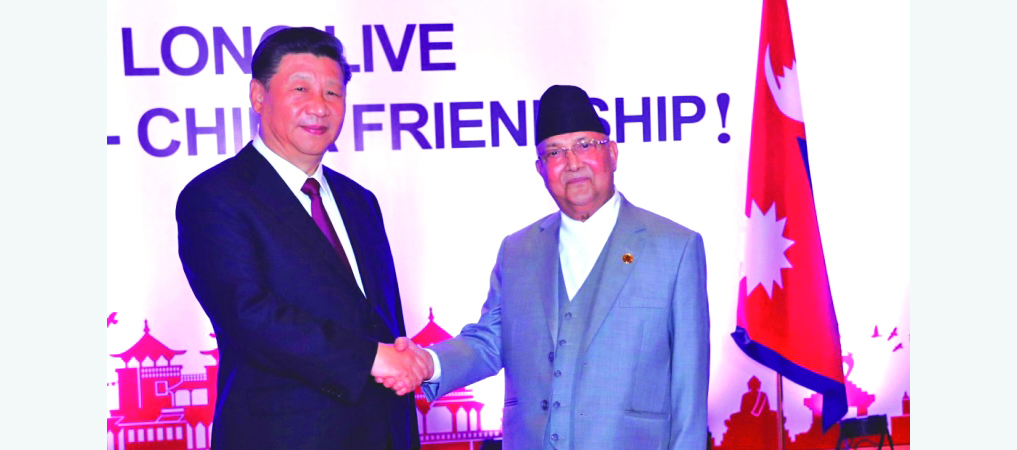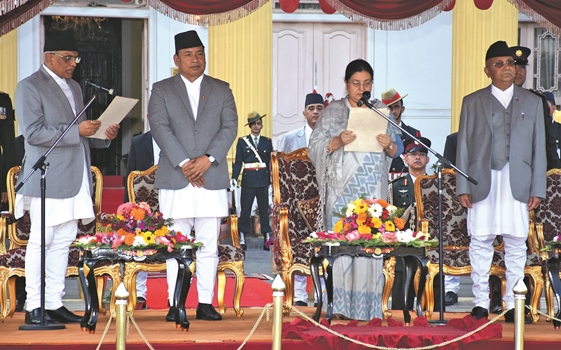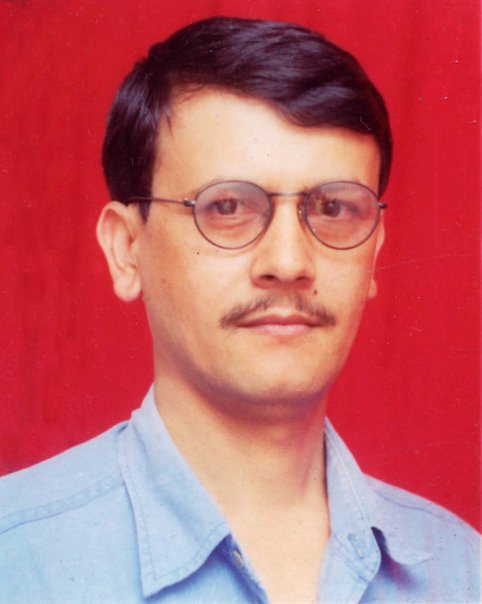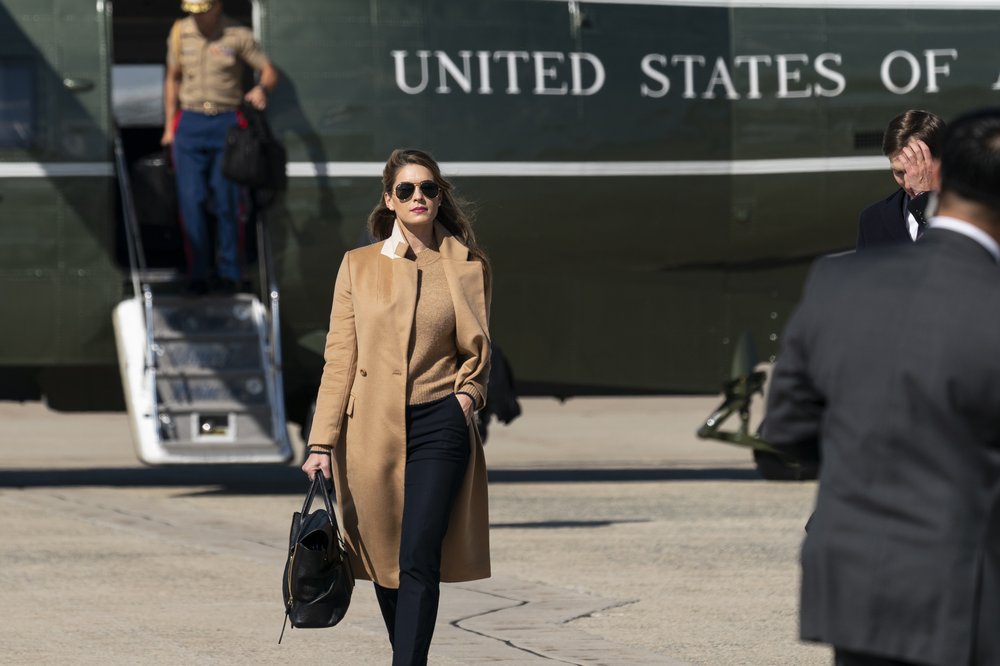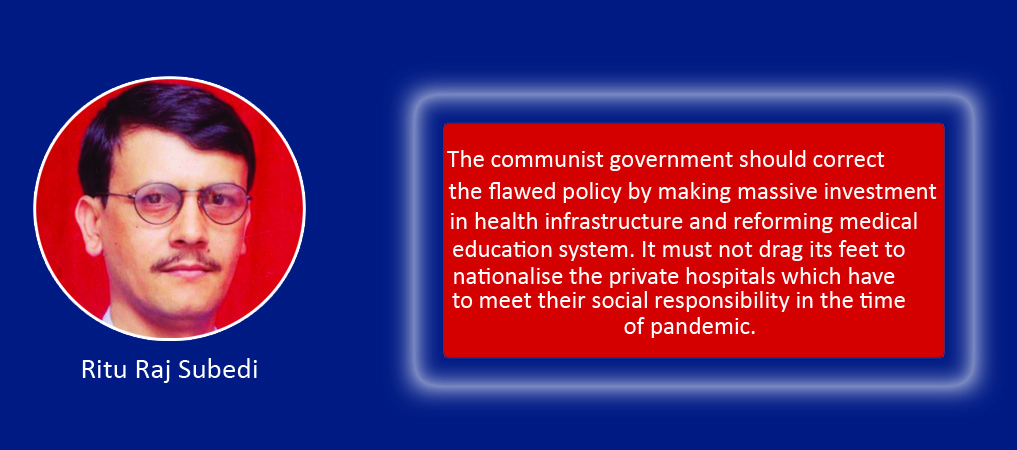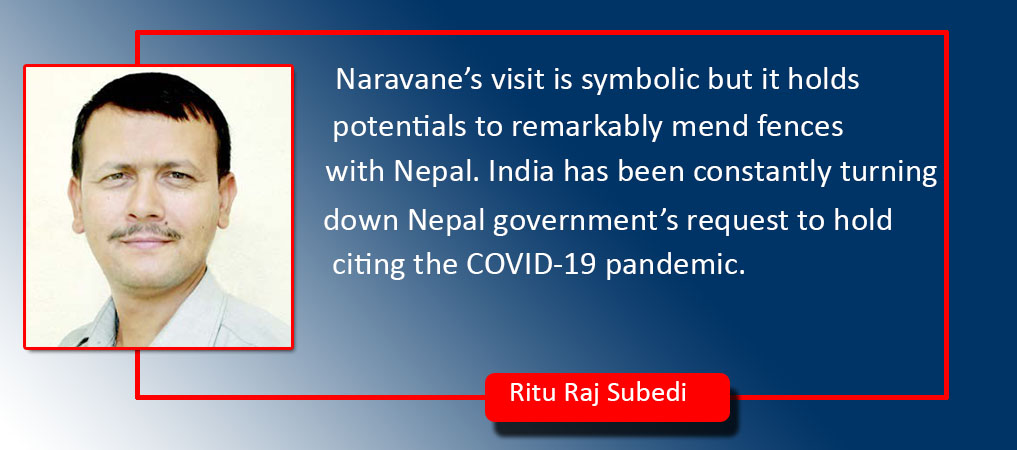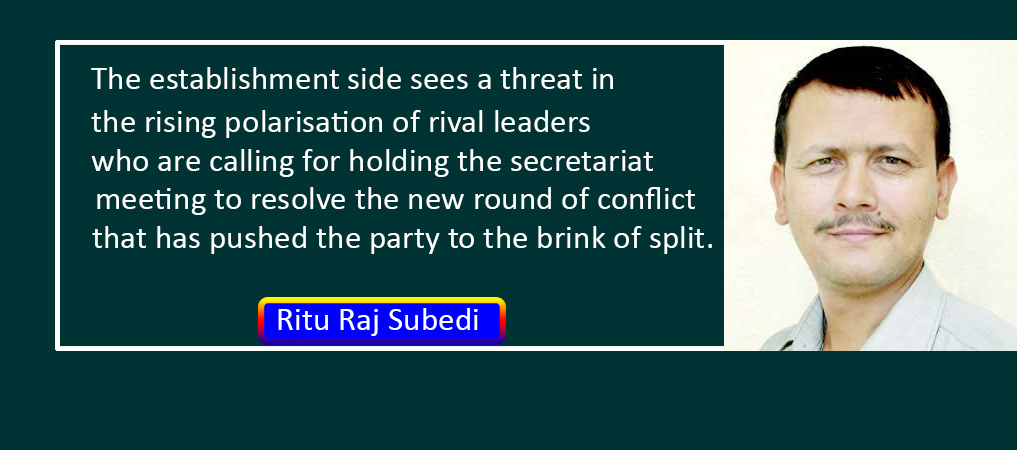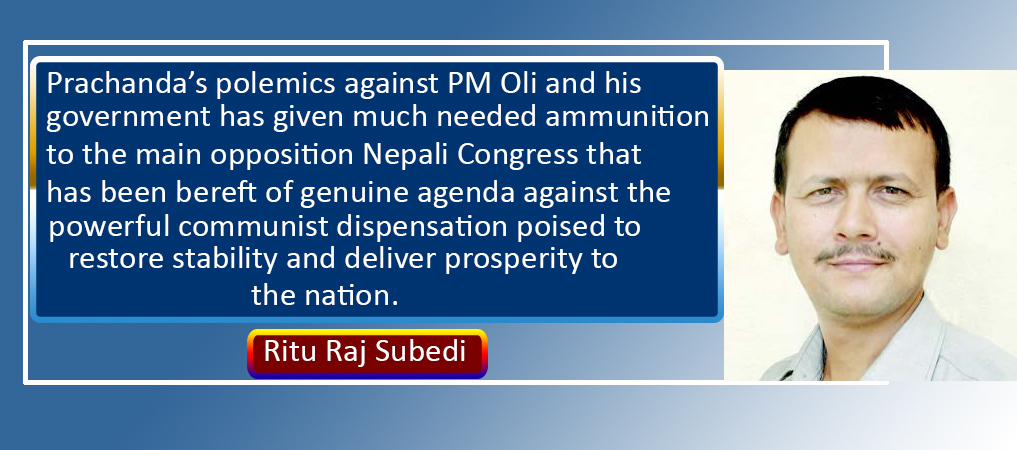Triumph Of Constitutionalism

Ritu Raj Subedi
THE Supreme Court’s historic verdict to reinstate the House of Representatives (HoR) has prevented the constitution from its immediate derailment. It has ruled out room for misinterpretations of the national charter, which the egocentric politicians, time and again, resort to for fulfilling their own vested and partisan interests. By preserving the sanctity of the statute, the apex court has also earned public trust and credentials. The judiciary had been dragged into controversies, undercutting its credibility and capability to deliver justice in time. The landmark decision has effectively allayed the fear of so-called ‘setting,’ a recently coined malign notion employed to discredit the system and hurt the people’s confidence in the integrity of elected dispensation and impartiality of the state organs.
Explained as the triumph of constitutionalism, the SC’s decision bears wider ramifications for the young federal republic moving on a bumpy road. First and foremost, it has put curbs on the power of prime minister to dissolve the HoR on flimsy political grounds. A PM can dissolve the Lower House and announce fresh polls only when all options of government formation, as outlined in the statute, are exhausted. The verdict has also prohibited the PM, who heads a majority government, from disbanding the House. This point seeks to restore respect to electoral mandate and ensure predictability essential for policy consistency and accelerated economic development.
Curbs on executive’s powers
The SC verdict has defined the form of governance system adopted following the promulgation of the new constitution in 2015. It states that Nepal’s parliamentary system is original and indigenous. It is not traditional one as practised in India or the Westminster model in the United Kingdom. The SC has mentioned the country’s mixed electoral system based on First-Past-The-Post and Proportional Representation, making the country’s governance system distinct from those exercising the same multiparty system. In Britain too, the people became fed up with the special rights of the PM and brought a new provision to put curbs on the executive’s powers. As per this, the PM must muster consent of two-thirds of lawmakers before dissolving the parliament.
The composition of Nepal’s federal and provincial parliaments is unique because it aims to make democracy inclusive, functional and justice-oriented. The country’s two-decades-long experiment with parliamentary system was disastrous at best. In the past, the untimely demise of parliament gave rise to discrepancies and systemic crises that spawned people’s disillusionment with politics and politicians. The new constitution has incorporated provisions which do not provide the PM with easy route to dissolve the House. So the SC refused to buy the arguments that the PM enjoys special rights to dissolve the sovereign people’s body. In his replies to the arguments of plaintiffs, PM KP Sharma Oli had insisted that it was his political step to dissolve the HoR and the court should not interfere in it. But the court said that the issue needed to be examined through the constitutional lens so it fell under its jurisdiction. This precedent will prevent the future PMs from dissolving the parliament at their whim.
The SC verdict highlights the importance of the federal parliament in deepening the new political system and stability. It was the first parliament elected in 2017 in line with the main law of the land. The ruling Nepal Communist Party (NCP) that was split into two following the House dissolution commands near two-thirds majority in the parliament. However, its significance remains high not just when seen from the NCP’s perspective. In 1960, when king Mahendra dissolved the parliament, founding general secretary of Communist Party of Nepal Pushpa Lal Shrestha demanded that the dissolved HoR be reinstated immediately even if his party had only four members in the parliament. Pushpa Lal had espoused a clear roadmap of the restoration of democracy but the Nepali Congress that had two-thirds of seats in the HoR was confused about the methods of protests against the king’s autocratic move.
Pushpa Lal knew the strength of parliament in bolstering nationalism, democracy and socialist programmes. How visionary he was became crystal-clear for all when the parliament, reinstated by the decree of former king Gyanendra in April 2006, announced sweeping measures, which created the grounds for the establishment of republican set-up through the Constituent Assemblies elected in 2008 and 2013. The people had handed a thumping victory to the NCP for its electoral slogans of stability, good governance and prosperity. But their hopes were dashed with House dissolution.
Separation of powers
With the HoR’s reinstatement, the constitution is back on track. So the SC verdict marks the triumph of constitutionalism which binds the government to a set of laws for governing the country. Based on the political theories of John Locke, constitutionalism states that ‘government authority is derived from the people and should be limited by a constitution that clearly expresses what the government can and can't do.’ and its legitimacy depends on its observing these limitations, according to the Stanford Encyclopaedia of Philosophy. Constitutionalism seeks to stop the arbitrary behaviour of the government. The state is not free to do anything it wants, but is bound by laws that limit its authority. It should run as per the principle of separation of powers which check the key organs of state from turning freewheeling and autocratic.
(Deputy Executive Editor of The Rising Nepal, Subedi writes regularly on politics, foreign affairs and other contemporary issues. subedirituraj@yahoo.com)
Recent News

Do not make expressions casting dout on election: EC
14 Apr, 2022
CM Bhatta says may New Year 2079 BS inspire positive thinking
14 Apr, 2022
Three new cases, 44 recoveries in 24 hours
14 Apr, 2022
689 climbers of 84 teams so far acquire permits for climbing various peaks this spring season
14 Apr, 2022
How the rising cost of living crisis is impacting Nepal
14 Apr, 2022
US military confirms an interstellar meteor collided with Earth
14 Apr, 2022
Valneva Covid vaccine approved for use in UK
14 Apr, 2022
Chair Prachanda highlights need of unity among Maoist, Communist forces
14 Apr, 2022
Ranbir Kapoor and Alia Bhatt: Bollywood toasts star couple on wedding
14 Apr, 2022
President Bhandari confers decorations (Photo Feature)
14 Apr, 2022



